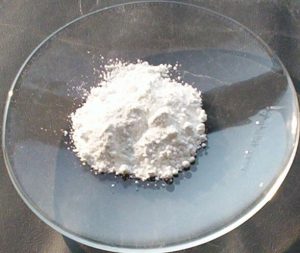Fruits are often celebrated for their vast health benefits, but there’s more to these natural wonders than the fruit itself. Recently, researchers have uncovered surprising health benefits linked to the leaves of the mangosteen plant, which could have significant implications for public health.
At the forefront of this discovery is Professor Dr Wong Ling Shing, Pro Vice-Chancellor (Research & Innovation) at INTI International University, who, alongside a team of researchers, has found that mangosteen leaves may play a crucial role in combating harmful bacteria. This finding is particularly relevant as concerns about bacterial infections and the need for new antimicrobial solutions continue to rise.


Professor Dr Wong Ling Shing, Pro Vice-Chancellor (Research & Innovation) at INTI International University, and a team of researchers discovered that mangosteen leaves have the potential to fight antibiotic-resistant bacteria.
So, how exactly do mangosteen leaves contribute to this battle against bacteria?
The research team utilised an eco-friendly method called green synthesis to extract zinc oxide (ZnO) nanoparticles from the mangosteen leaves. The process involved cleaning, drying, and grinding the leaves into a fine powder. This powder was mixed with deionised water, heated, and filtered to obtain the leaf extract. The team meticulously examined the properties of the ZnO nanoparticles produced from this extract using advanced scientific techniques.

Zinc oxide (ZnO) nanoparticles are synthesised using leaf extracts through a process known as green synthesis, which is an eco-friendly alternative to traditional chemical methods.
The study’s findings are compelling. The ZnO nanoparticles derived from mangosteen leaves demonstrated powerful antibacterial properties. When tested, these nanoparticles were effective against several types of bacteria, including Staphylococcus aureus, known for causing severe infections such as pneumonia, bloodstream infections, and bone and joint infections; Bacillus subtilis, a bacterium that, while less harmful, can cause food spoilage; Escherichia coli, commonly associated with foodborne illnesses; and Klebsiella pneumoniae, a particularly dangerous bacterium linked to life-threatening pneumonia with a mortality rate of up to 50%.

Pneumonia is a severe lung infection caused by bacteria, viruses, or fungi. It occurs when the air sacs fill with pus and other fluids.
Among these bacteria, the ZnO nanoparticles showed particularly strong efficacy against Staphylococcus aureus and Klebsiella pneumoniae, making them a promising natural antibacterial agent.
This groundbreaking research on green-synthesized zinc oxide nanoparticles from mangosteen leaves offers exciting new possibilities in the fight against harmful bacteria. By tapping into the potential of natural resources, Professor Wong and his team have shown how traditional knowledge can be combined with modern science to address some of today’s most pressing healthcare challenges. In Malaysia, where bacterial infections and antibiotic resistance are growing concerns, such innovative approaches could pave the way for more effective and sustainable medical treatments in the future.